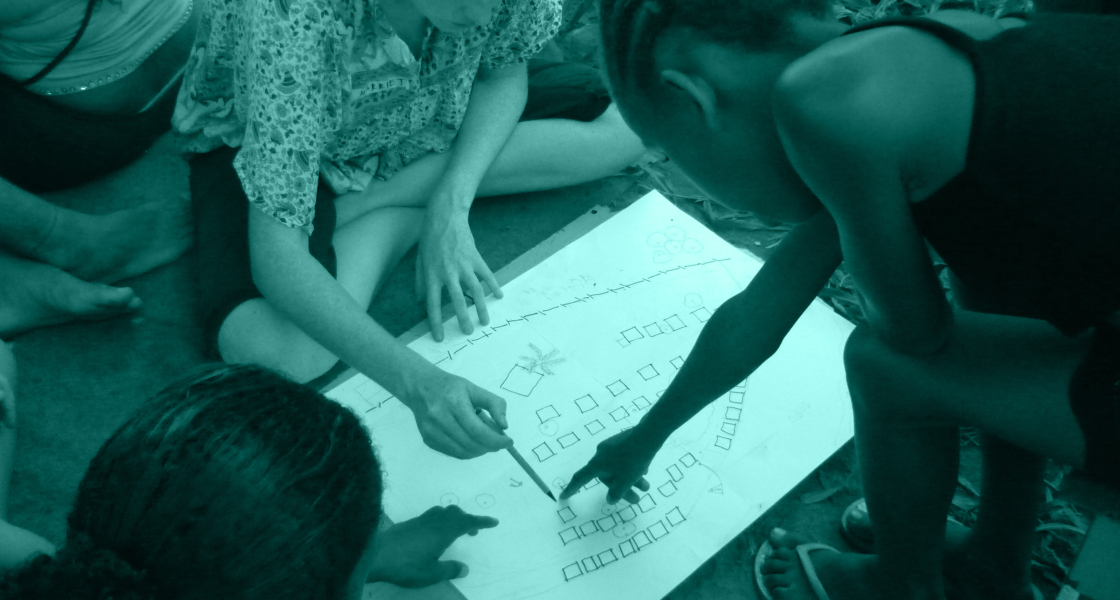An interactive game of exploration where children mark relevant spaces in their neighbourhood and discuss their characteristics. pdf download
Goal: To understand how children feel in different spaces in their neighbourhood.
Audience: Children 5 – 12 years old.
What you need:
– Cardboard box for the dice or plain paper for the origami
– Colouring pencils and markers
– Coloured card for flags or balloons as markers
– Masking tape, glue, pins
– Stapler
– Sticks or kebab skewers
Description
This tool requires children to take all of the facilitators and participants around the neighbourhood finding places that answer the questions asked.
In a game style, children role a dice and anwer questions with locations in their neighbourhood. Questions can, for example, focus on favourite or least favourite places, areas to play in or to be wary of.
Flags or balloons are used to mark these locations. Different colours or symbols on flags or balloons refer to different answers. The answers should be recorded along with notes during the run, e.g. descriptions of the location and what it means to them etc.
Instructions:
Step 1: Prepare the game tools.
Step 2: Introduce the activity to the children in groups of a manageable size – no more than 8.
Step 3: Start the game, provide children with flags that relate to their question.
Step 4: Record and analyse the information, during the ‘run’ and the participants’ final answers.
Step 5: The game can be fast paced and may require facilitators to return back to the locations. Facilitators must collect the flags from their locations. This may be an opportunity to record more information about children’s choices in locations.




